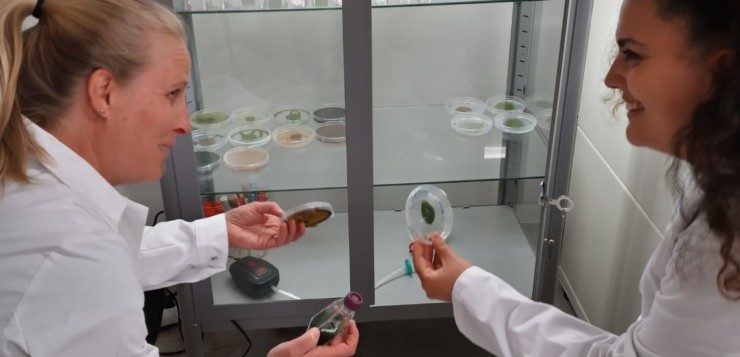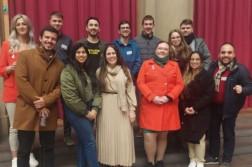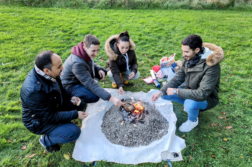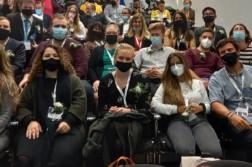Seven higher education institutions, including HAMK, set up RUN European University just over two years ago. Various staff exchanges and visits have already been piloted within the alliance. In addition, students have already had possibility to take part in many international study modules and to get together with students from the alliance’s higher education institutions.
There are many ways to gain international work experience at RUN-EU. Employees of Häme University of Applied Sciences can develop their skills in RUN-EU through joint study and degree programmes, research projects and short-term staff mobility periods, for example, exchanges and visits. So far, the mobility periods have been used mainly by researchers and teachers, but it is also open to any other HAMK staff member – for example, an employee of the IT services or the library.
A week in Portugal
One of the employees who took part in the event from HAMK is Lotta Hirvonen, a lecturer in communications at HAMK’s Forssa campus. Together with teachers from other RUN-EU higher education institutions (HEIs), she conceived and implemented a multicultural competence study module for students, which culminated in a week-long intensive course in Portugal last November.
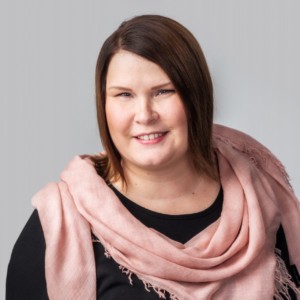
”It was really interesting to see different ways of teaching. I’ve been working at HAMK for two years and I didn’t have previous teaching experience before that. This was a great opportunity to learn from other teachers from each of the RUN-EU countries, many of whom already had a long teaching experience.”
So far 37 study modules, known in English as Short Advanced Programmes (SAPs), have been implemented in RUN-EU, ranging from 1 to 6 credits. They involve short mobility and are designed and delivered by at least two different RUN-EU HEIs. In addition to these short and flexible modules, students can gain international experience by exchange studies at a RUN-EU HEI or by completing a degree in two RUN-EU countries and getting a diploma from both RUN-EU institutions.
”Although the days were long and intense, the students were enthusiastic and motivated and the teaching was really rewarding,” says Hirvonen about the study week in Portugal.
Sharing research interests – a month at HAMK
Researcher mobilities and joint research projects are also a key venue for staff mobility. An example of this is Dr. Hande Ermis, a postdoctoral researcher from TUS (Technological University of the Shannon), who came to HAMK last May from Ireland. Her research focus is on microalgae, and, during her visit, she got to know more about HAMK’s microalgae research.
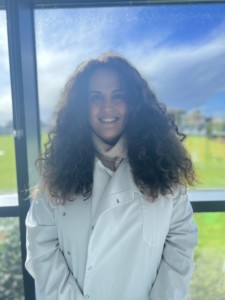
”There are so many different species of microalgae. At HAMK, I got involved in researching with a species that grows in the dark producing different high value products that can be used to improve human health. I had never studied with this microalgae before, so it was very interesting for me,” says Dr. Ermis.
The research work that has now begun with HAMK and TUS will be continued.
”It is very important to know your research partner’s laboratories and working methods in order to build long-term research cooperation and to participate in new research projects together. HAMK has spacious and well equipped laboratories and working with HAMK researchers was a great experience. I did not only establish academic relationships, but also built friends with my colleagues from HAMK. ”
Both Hirvonen and Ermis encourage their colleagues and students to take advantage of the internationalisation opportunities offered by RUN-EU.
”The mobility period requires a curious mind, but fortunately it is quite easy to make new contacts with our partners and our international office, for example, can help if needed. After this experience, I am even more eager to encourage my students to take advantage of the internationalisation opportunities that HAMK has to offer for students,” says Hirvonen.
Dr. Ermis agrees and adds: ”It is important not only for RUN-EU employees but also for students to see different ways of working, different working environments and different cultures. Such experiences are essential for personal growth.”
In addition to joint educational projects and research activities, RUN-EU HEIs also build other structured pathways for their staff and students to network, internationalise and develop their skills. For example, the RUN-EU general assembly last autumn brought two hundred guests from six different RUN-EU countries to HAMK.
What is RUN-EU?
RUN-EU (The Regional University Network – European University) is an alliance of regional higher education institutions that work together to develop high-quality education and research that meets the needs of the future and of the regions in which they operate.
The European University was launched in the summer of 2021 and currently includes six universities from Portugal, the Netherlands, Ireland, Austria and Hungary, in addition to HAMK. In total, there are 76500 students and 8000 staff members in the RUN European University.
Read more about the European University at HAMK’s website and RUN-EU’s website.
